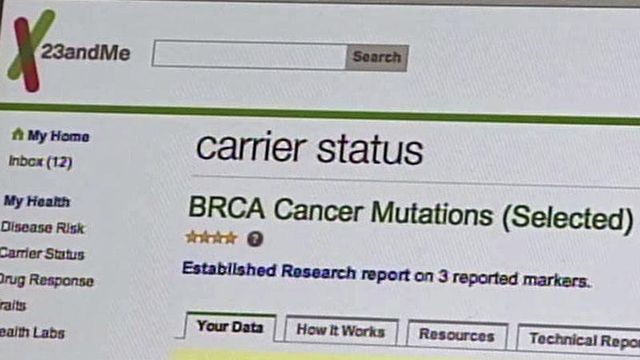Home DNA kits can confuse
The presence of pink is a signal that October is Breast Cancer Awareness month. For some who worry about the chance of developing the disease, home DNA test kits can be a lifesaver.
Posted — UpdatedThe presence of pink is a signal that October is Breast Cancer Awareness month. For some who worry about the chance of developing the disease, home DNA test kits can be a lifesaver.
But the kits have come under government scrutiny recently. Experts are concerned that the results could be misinterpreted. There's no government regulation of this new industry.
A positive test for BRACA-1, a gene mutation linked to elevated breast cancer risk, led Jill Steinberg to have radical surgery. She got both breasts removed as a preventative measure.
“It's that or cancer,” she said. “It's a small price to pay.”
Steinberg didn't learn about the gene from her doctors. She doesn't have a strong family history of breast cancer, so they didn't recommend genetic testing. Instead, her husband bought home DNA test kits after reading about them on Twitter.
“I thought it would be more of a fun thing to do,” he said.
Jon Steinberg got the results by e-mail. “I clicked on it. I saw the results that she's a trait carrier and my heart sort of sunk,” he said.
After the learning the news, the Steinbergs got genetic counseling, double-checked the accuracy and developed a plan with doctors.
Experts worry that not everyone can afford to do that.
“If they get this information without knowing what their choices are, it can be a really devastating blow,” said Dr. Freya Schnabel of the NYU Langone Medical Center.
“If you're getting a genetic test, I think you need to be prepared for the results,” Jill Steinberg said.
The company that makes the kit Jill used plans to work with the FDA to make sure the results are clear and accurate.
Copyright 2024 by Capitol Broadcasting Company. All rights reserved. This material may not be published, broadcast, rewritten or redistributed.





